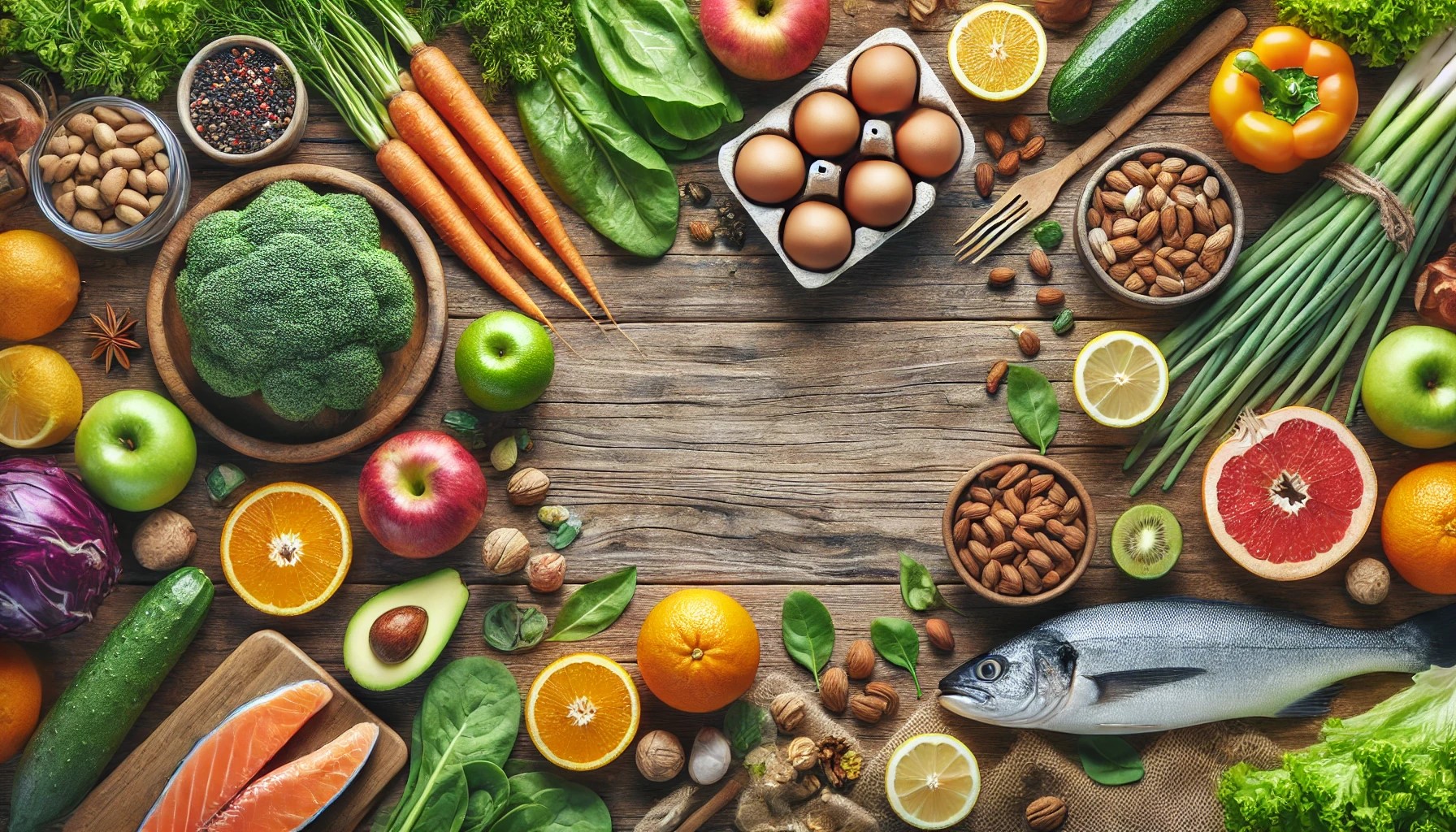Vision depends on the right nutrients. Deficiencies can lead to dryness, fatigue, and long-term issues. The right balance of vitamins and minerals helps protect against age-related degeneration, supports night vision, and maintains overall eye function. Here are the most valuable nutrients for eye health.
1. Vitamin A – Protects the Cornea
Vitamin A is necessary for producing rhodopsin, a protein in the retina that helps with low-light vision. It also keeps the cornea clear and moist. A deficiency can lead to night blindness and dryness.
Sources:
- Carrots
- Sweet potatoes
- Leafy greens
- Liver
- Eggs
2. Vitamin C – Fights Oxidative Damage
Vitamin C helps protect the eyes from free radicals that contribute to aging and tissue breakdown. It supports collagen production, which keeps blood vessels in the eyes strong.
Sources:
- Citrus fruits
- Bell peppers
- Strawberries
- Kiwi
- Tomatoes
3. Vitamin E – Shields Against Free Radicals
Vitamin E helps slow damage from oxidative stress, which can contribute to conditions such as cataracts and macular degeneration.
Sources:
- Nuts and seeds
- Spinach
- Avocados
- Sunflower oil
- Almonds
4. Zinc – Supports Night Vision
Zinc helps transport Vitamin A from the liver to the retina to produce melanin, a protective pigment in the eyes. A deficiency can lead to poor night vision and increased risk of age-related decline.
Sources:
- Oysters
- Beef
- Pumpkin seeds
- Chickpeas
- Dairy products
5. Lutein and Zeaxanthin – Filter Blue Light
These carotenoids act as natural filters for high-energy blue light, reducing the risk of eye strain and damage over time. They are found in high concentrations in the retina.
Sources:
- Kale
- Spinach
- Corn
- Egg yolks
- Peppers
6. Omega-3 Fatty Acids – Reduce Dryness
Omega-3s help maintain the health of the retina and reduce inflammation that contributes to dry eye syndrome. They also play a role in preventing age-related degeneration.
Sources:
- Fatty fish (salmon, mackerel, sardines)
- Flaxseeds
- Walnuts
- Chia seeds
- Algal oil
7. B Vitamins – Prevent Vision Loss
B-complex vitamins, including B6, B9 (folate), and B12, lower homocysteine levels, an amino acid linked to retinal damage and macular degeneration.
Sources:
- Whole grains
- Meat and poultry
- Dairy products
- Legumes
- Leafy greens
8. Astaxanthin – A Powerful Antioxidant
Astaxanthin helps reduce strain from prolonged screen use and protects against oxidative stress that contributes to aging-related eye conditions.
Sources:
- Wild-caught salmon
- Shrimp
- Crab
- Lobster
- Microalgae
9. Selenium – Works with Antioxidants
Selenium helps the body absorb and use Vitamin E efficiently. It also supports overall immune function, which benefits eye health.
Sources:
- Brazil nuts
- Tuna
- Brown rice
- Sunflower seeds
- Eggs
10. Copper – Maintains Retinal Health
Copper assists in the formation of melanin, the pigment that protects the eyes from light damage. It also supports red blood cell production, which carries oxygen to the eyes.
Sources:
- Shellfish
- Whole grains
- Dark chocolate
- Nuts
- Legumes
Supporting Eye Health Daily
A nutrient-rich diet, hydration, and limiting screen time all contribute to long-term eye function. A daily eye care routine that includes proper nutrition, regular breaks from screens, and protective eyewear can help maintain vision.
In addition to diet, incorporating the best eye exercises can reduce strain and improve focus. Simple techniques like palming, focusing on near and far objects, and blinking exercises support eye muscle strength and relaxation.
The right vitamins help protect against strain, dryness, and degeneration. Simple dietary adjustments can go a long way in maintaining strong vision for years to come.
